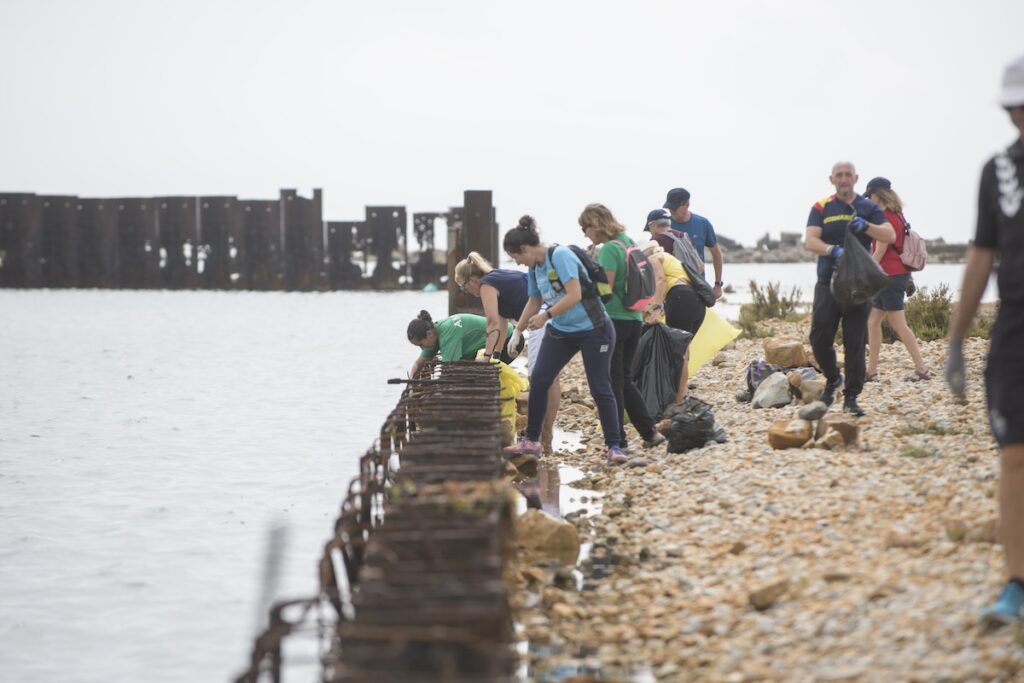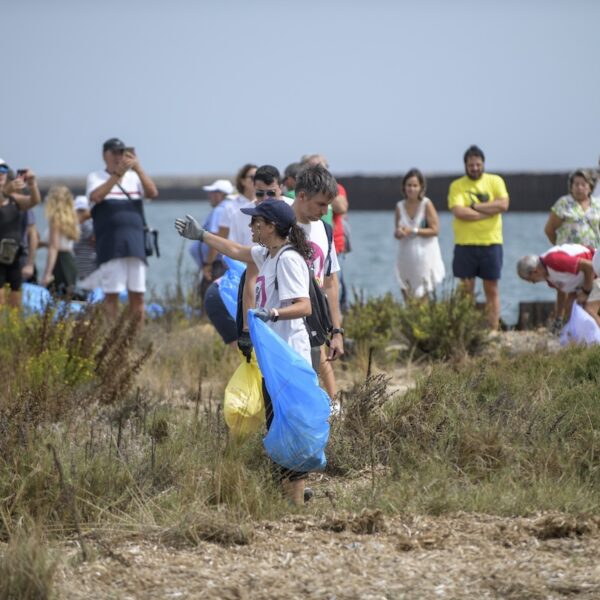There is a growing awareness of the danger posed by tons of waste being thrown into nature. A project like Libera Spain attests to this with over 680 tons collected since 2017. It reflects the commitment of a society more engaged in environmental protection and more sensitive to biodiversity conservation.
The project LIBERA, launched by the Ecoembes Foundation and SEO/BirdLife, was created in 2017 to raise awareness about the issue of waste abandoned in nature and to preserve it. Its origin accompanies the growing concern for the serious impact of "basuraleza," a Spanish term to describe the accumulation of waste in our natural spaces. Since then, more and more people are engaging in a common mission: to clean up natural areas from waste. Elderly, adults, children, entire families... a heterogeneous group joins the LIBERA project in different parts of Spain to pick up the waste left by others. Among them, Montse Álvarez Quintero, a volunteer for five years, celebrates the increasing success of these initiatives: "The commitment to the environment, and especially to your immediate environment, is growing. There is greater awareness and LIBERA contributes to it.".
The main goal of the association is to motivate citizens to clean and restore natural areas, as well as to promote environmental education to change attitudes. "This year (2024), on the occasion of our eighth anniversary, the great citizen mobilization of LIBERA returns: '1m2 against basuraleza'. From the organization, we encourage the creation of collection points for Saturday, June 1st throughout Spain", explains Sara Güemes, LIBERA coordinator at Ecoembes, an environmental association.

Citizen mobilization: the power of green commitment
Summer season is approaching, followed by the increase of waste on the beaches, as well as the rivers, lakes, fields, and forests. In this eighth edition of '1m2 against basuraleza', there are three ways to participate: by creating and coordinating a collection point in any natural area of the country (until May 26); by registering at existing points, which can be found on the map available on the website (until May 31), or by spreading the campaign through social networks using the hashtags #Libera1m2 and #ProyectoLIBERA.
Sara Güemes, confident in the success of previous calls, points out: "Thanks to the commitment and work of all, in 2023 and through the first four campaigns, we have managed to collect and sort nearly 124 tons of waste in over 2,100 natural sites. During these campaigns, approximately 335,000 waste items abandoned in nature have been characterized. Taking into account the "basuraleza" collected since 2017, we have picked up over 680 tons and characterized over a million waste items in more than 8,000 sites."
In the same way, volunteer Montse Álvarez shares this feeling of contentment: "When you see everything clean, you feel a special joy. You feel connected to nature. What we do every day contributes to the future we dream of for our planet and to our behavior."
Technology at the service of the environment
Technology plays a crucial role in the fight against waste by disseminating information and educating through social networks, digital platforms, and mobile applications. In addition, recent advances have enabled the development of devices and monitoring systems that identify areas affected by waste accumulation through satellite images, drones, and sensors.
LIBERA released its dedicated application 'Basuraleza', developed by the organizations Paisaje Limpio and Vertidos Cero. It allows volunteers who wish to identify the collected waste and help to analyze natural areas. Sara Güemes adds another clear example: "MICRO, the first website that presents various projects and their results associated with studies on microplastics in Spain".
More broadly, the expert acknowledges that the removal of waste from our natural environments requires a comprehensive approach: knowledge, prevention, and participation. First and foremost, it is essential to understand the problem in order to address it appropriately. Science is indeed a valuable ally to better understand the quantity, composition, origin, and behavior of waste. Next, prevention aims to raise awareness and educate about nature-friendly behaviors. Finally, it is, of course, about encouraging citizens to take action.
